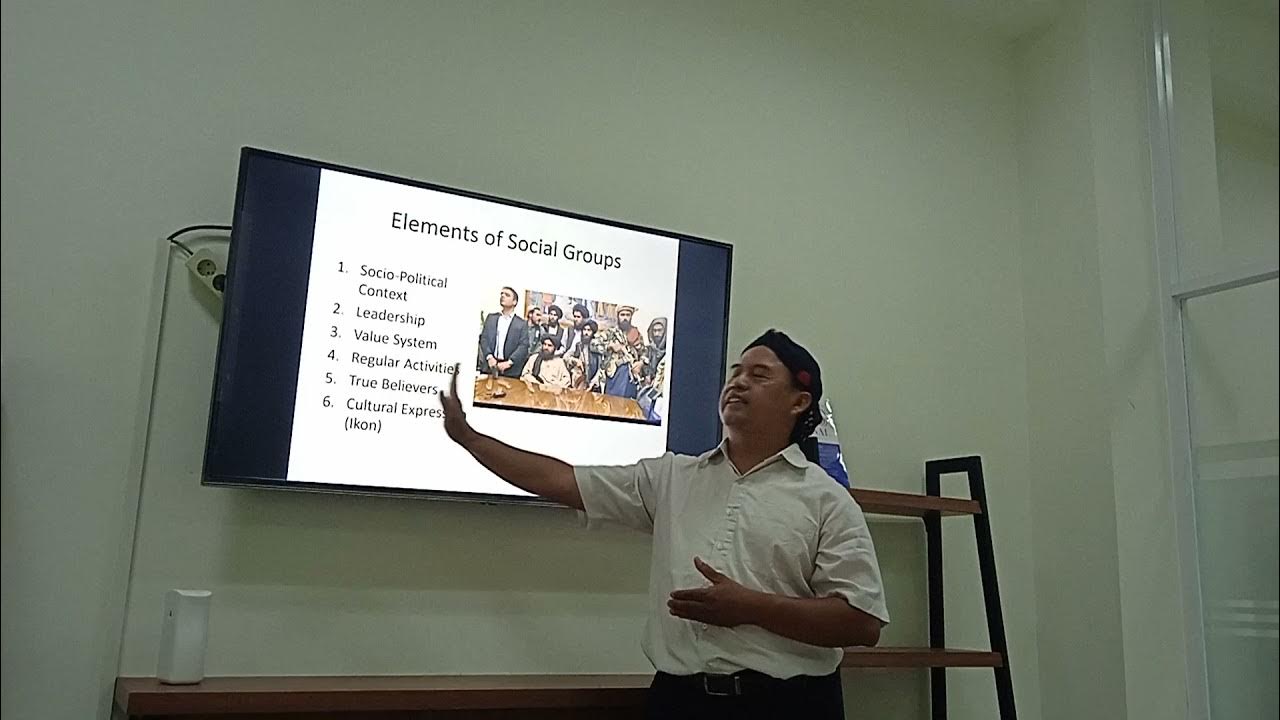Concept and History of Sociology
Summary
TLDRThe transcript revolves around a lively discussion on sociology, presented in a mix of languages. It touches on topics such as socio-political contexts, youth leadership, generational differences, and the role of sociology in understanding society without judgment. The speaker emphasizes sociology’s purpose in analyzing different aspects of society, including education, religion, and economic behavior. Through various examples, the speaker encourages listeners to understand rather than judge different lifestyles and social phenomena. The discussion ends with a note of gratitude, blending multiple languages to reflect the diverse audience.
Takeaways
- 😀 Welcome message in multiple languages: Indonesian, Arabic, Korean, and English.
- 🧑🏫 The speaker introduces sociology as the main topic of discussion.
- 👥 Sociology is portrayed as the study of groups and social dynamics, especially among youth.
- 🏫 High school students are referenced as a case study for understanding generational differences in social behavior.
- 🗣️ The speaker mentions a leader who fails, which could reflect on the challenges of leadership within youth groups.
- 📚 The importance of understanding society without judgment is emphasized.
- 🤔 The speaker encourages understanding diverse ways of life, especially within specific communities.
- 💭 Sociology is seen as a tool to analyze behaviors and not to make moral judgments.
- 🎓 Examples of sociology fields are given, including sociology of education, economics, music, and religion.
- 🙏 The session ends with thanks in multiple languages: Korean (Kamsahamnida), Spanish (Obligado), and possibly Indonesian (Fathonul).
Q & A
What is the main focus of the discussion in the script?
-The script centers around sociology, particularly its relevance to youth, education, and social contexts.
How is sociology presented in relation to teenagers?
-Sociology is discussed in the context of understanding the behaviors and social structures of teenagers, with emphasis on not judging but understanding their special way of life.
What does the speaker emphasize about understanding society?
-The speaker emphasizes that sociology should be about understanding society rather than judging it, particularly in cases where behaviors might be seen as rebellious.
What does the speaker suggest about young leaders?
-The speaker suggests that young people, who might be seen as reckless or bold, should be encouraged to lead rather than labeled as dangerous.
What role does sociology play in education according to the script?
-Sociology in education is presented as a tool for understanding societal dynamics and how educational systems interact with different social groups.
How does the speaker describe the relationship between sociology and religion?
-The speaker touches on the sociology of religious activities, implying that sociology helps to understand how religious practices are integrated into social life.
What is the significance of ‘not to judge’ in the context of sociology?
-The phrase 'not to judge' is highlighted to show that sociology's goal is to understand various social behaviors and communities without imposing moral judgments.
What does the speaker mean by 'sociology that accompanies the people'?
-This refers to a form of sociology that actively engages with communities to understand their experiences rather than observing from a distance.
Why is understanding different generational behaviors important in sociology?
-Understanding different generational behaviors is important in sociology because it helps explain how social norms and values evolve across time, especially between older and younger generations.
How does the speaker view youth who are labeled as rebellious?
-The speaker suggests that youth labeled as rebellious should not be judged harshly, as their behaviors might reflect broader social issues or be part of their unique expression.
Outlines

This section is available to paid users only. Please upgrade to access this part.
Upgrade NowMindmap

This section is available to paid users only. Please upgrade to access this part.
Upgrade NowKeywords

This section is available to paid users only. Please upgrade to access this part.
Upgrade NowHighlights

This section is available to paid users only. Please upgrade to access this part.
Upgrade NowTranscripts

This section is available to paid users only. Please upgrade to access this part.
Upgrade Now5.0 / 5 (0 votes)





